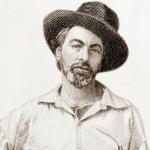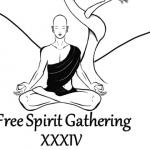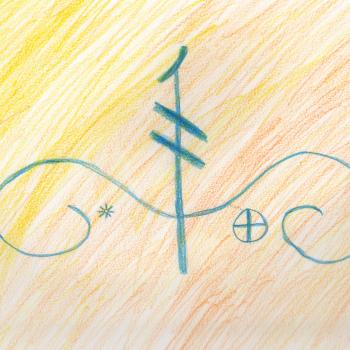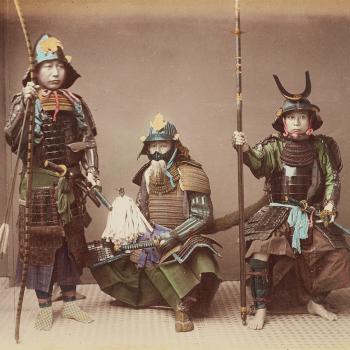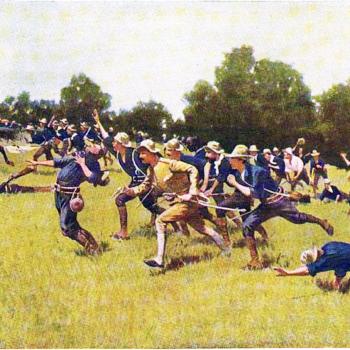Our friends and blogging neighbors John Beckett and Jason Mankey have recently been talking about Pagan priesthood.
If setting yourself — or someone else in your community — as a priest is your thing, by all means don’t let me stop you. But my Paganism is very much aligned with these words of Walt Whitman, from the preface of the 1855 edition of Leaves Of Grass:
There will soon be no more priests. Their work is done. They may wait awhile … perhaps a generation or two … dropping off by degrees. A superior breed shall take their place … the gangs of kosmos and prophets en masse shall take their place. A new order shall arise and they shall be the priests of man, and every man shall be his own priest. The churches built under their umbrage shall be the churches of men and women. Through the divinity of themselves shall the kosmos and the new breed of poets be interpreters of men and women and of all events and things. They shall find their inspiration in real objects to-day, symptoms of the past and future… . They shall not deign to defend immortality or God or the perfection of things or liberty or the exquisite beauty and reality of the soul. They shall arise in America and be responded to from the remainder of the earth.
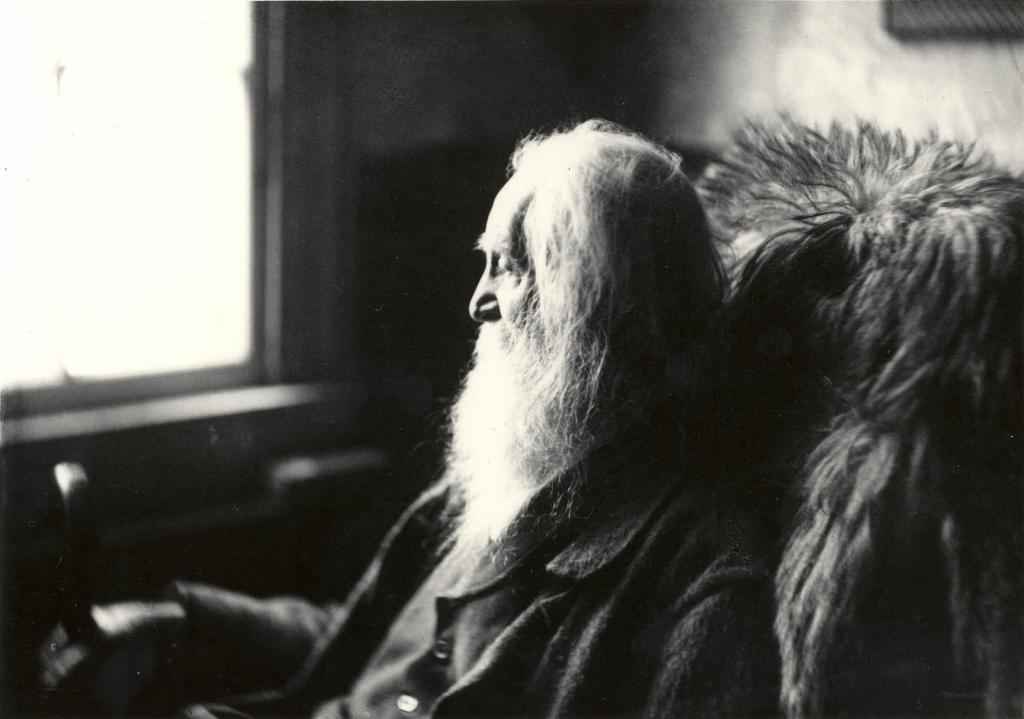
This was actually a big part of what first attracted me to Paganism in the early 1990s: each person in our little group would occasionally take on the role of ritual leader, each of us being our own priest. (Or priestess…or perhaps “priest” should be an ungendered word. A tangent for another time.) There was no “consecrated religious specialist”, as John Beckett puts it, in our little “Coven Of Lovin'”. Unlike my childhood Catholicism, we were — explicitly — all equally holy.
Of course that doesn’t mean that we were all equally skilled or talented at leading ritual. But in a small group with everyone actively participating, mutual support made up much of the difference.
I come back often to the distinction that Joseph Campbell drew between priestly and shamanistic religions.
The shaman operates in a less specialized culture where the direct mystical experience is available to all. The shaman is the best at the tribe at this, is recognized by the tribe for having the best personal relationship with the spirits, but the general sort of experience is not unique to them. Everyone can have it, and dogma is minimal.
In contrast, agrarian, literate, “civilized” religions are centered around an institutionalized priesthood. It does not matter how strong a mystical experience one may have, one can become a priest only via a ritual investiture by other priests. This transmission or ordination occurs in a formal structure embodying a set dogma. In such a society, for access to the divine you must go through approved channels.
(We are, of course, drawing a very broad picture here, but one I think is worthwhile.)
Campbell believed that the sort of social structure that enabled agrarian priestly religion started to break apart with the Enlightenment and the Industrial Revolution, and that in the coming age we will need more the courage of the shaman than the piety of the priest.
And it’s my contention that the proper function of the Neopagan revival is to build this sort of religion: one of direct experience rather than priestly intermediation.
John Beckett lists 15 roles for a Pagan priesthood, but why should these roles be limited to a small special class, rather than broadly distributed throughout the community? Let each of us find a role as a ritual creator, performer, “pastoral” style counselor, healer, community leader, and so on. (While also keeping in mind the virtue of being able to fill multiple roles, and Heinlein’s dictum that specialization is for insects.)
Rather than a specialized priesthood, let us all be “kosmos and prophets en masse”, as Uncle Walt foresaw.


